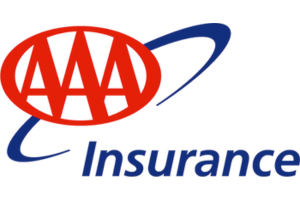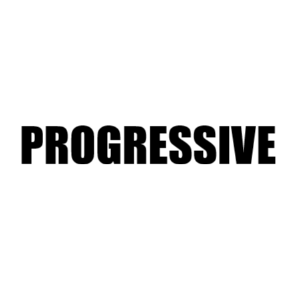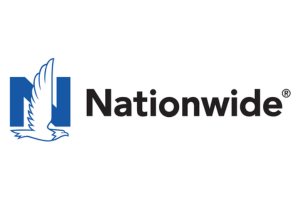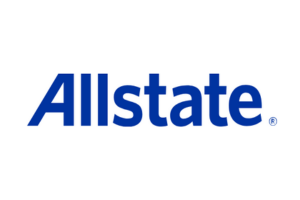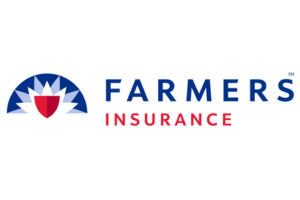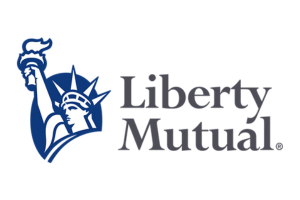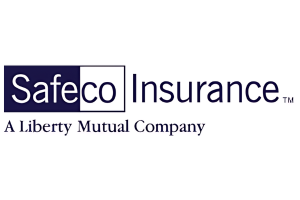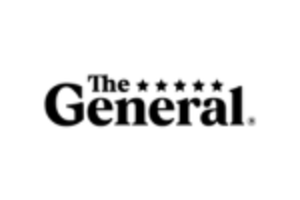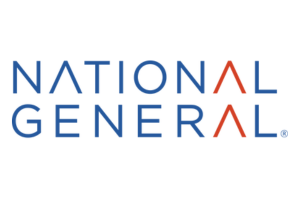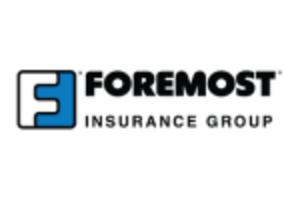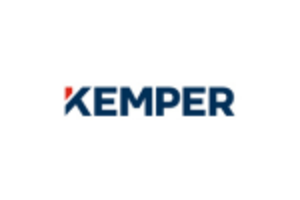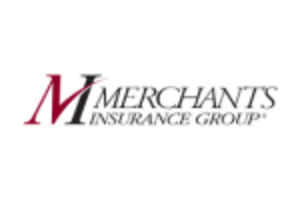Best New Hampshire SR-22 Insurance in 2026
What are the requirements in New Hampshire if you need an SR-22?
Although car insurance is not required in New Hampshire, there is still an SR-22 requirement in the state. You should also keep in mind what options you have for coverage in New Hampshire, and at least know who offers the best insurance. If you’ve committed a certain driving violation or are considered a high-risk driver, you may be required to have car insurance and need to file an SR22 form. An SR-22 form acts as proof of insurance, which is typically necessary with an SR-22. Having coverage may be required in New Hampshire to get your driving privileges back if your license was suspended.
You may have heard the term SR-22 insurance if you need to file an SR22 form in New Hampshire. While it’s not actually any different type of policy or coverage on its own, it’s often called SR-22 insurance because it affects your need for coverage and in some instances, how much you'll pay. On average, New Hampshire drivers who are required to have SR-22 insurance after a DWI pay 73.5 percent more for their auto policy than drivers with a clean driving record.
There are two types of SR-22 insurance that are acceptable in New Hampshire. When you file an SR-22 form, one of these types of policies will be listed on your certificate. These types of SR-22 insurance include:
Operator SR-22 - This applies to those who don’t own a car. Operator SR22 insurance allows drivers to operate a vehicle but doesn’t allow the driver to register a vehicle.
Owner SR-22 - This applies to those who own a car. This type of SR22 insurance allows the driver to register a vehicle and operate a vehicle.
There are strict guidelines that apply when you have to file for an SR-22. Typically, an SR-22 is required for three years, but you may be required to have it for longer depending on your violation. In the event of the first offense DWI (driving while intoxicated), SR-22 insurance must be filed for three years, but the required filing period is longer if it’s your second or subsequent offense. Throughout your filing period, you must maintain your SR-22 insurance without any lapse in coverage.
If during this period the SR-22 insurance policy lapses because of non-payment of your premium or cancellation of the policy by either the insurer or the insured, your insurance company will notify the New Hampshire DMV that you no longer have an active policy with the company. This may result in your license being suspended and you needing to restart the SR-22 filing period.
After the completion of the filing period, SR-22 filers must contact the New Hampshire Bureau of Financial Responsibility to have their record reviewed to determine whether they have fulfilled their obligations or not. If the filing period hasn’t been met or it needs to be extended, you will be required to continue filing the SR-22 until the end of the filing period. However, if the requirements have been met, the DMV will send across a Notice of Relief of Filing to your insurance provider.
Should any of this concern you, you may want to find out what minimum coverage requirements you'll need, even though New Hampshire works a little differently in terms of insurance, which we'll cover below. If you need to compare companies, we offer an online, free tool that can help you.
What limits will you need if you choose to purchase insurance?
New Hampshire is a unique state because it doesn’t require drivers to have any sort of minimum coverage per person, but should you choose to get an auto insurance policy, you’re required to have bodily injury liability coverage, medical payments coverage, and uninsured motorist coverage. SR22 insurance verifies to the New Hampshire DMV that you have at least the following coverage and limits:
- Liability:
- $25,000 for bodily injury per person
- $50,000 for bodily injury per accident
- $25,000 for property damage per accident
- Medical payments:
- $1,000 per person
- Uninsured motorist:
- $25,000 for bodily injury per person
- $50,000 for bodily injury per accident
- $25,000 for property damage per accident
Although having an auto policy isn’t required in New Hampshire unless you’re required by the DMV to have it, the New Hampshire DMV encourages all drivers to purchase a coverage policy. Uninsured drivers can pose a major risk to other people on the roads who do have auto coverage. Not to mention the costs associated with not having some form of protection can end up costing someone a lot of money, especially if they're at fault.
Who needs SR-22 in New Hampshire?
SR-22 insurance in New Hampshire may be required in certain cases. Typically, drivers may be required by the state or court to file an SR-22 form after committing certain driving violations that make them high-risk drivers. One of the most common reasons drivers need SR-22 insurance is because of a DWI violation. According to the New Hampshire DMV, you may be required to have SR-22 insurance in New Hampshire for the following reasons:
- DWI - (1st offense, 2nd, subsequent, and aggravated).
- Underage DWI - (1st offense, 2nd, subsequent, aggravated).
- Leaving the scene of an accident
- Conduct after accident
- Subsequent (2nd) offense reckless operation
Should any of these violations end up on your record, you'll need an SR-22 certificate to prove that you have the minimum policy required by the state.
What are the rates in New Hampshire if you have an SR-22?
New Hampshire SR-22 insurance increases your car insurance costs since it is an indication that you may be a high-risk or non-standard driver. The cost of SR-22 insurance depends on each individual’s age, gender, driving history, repeat offenses & violations, their credit score and more. It also depends on the insurance company chosen. The lowest rates may not be available, but that's a trade off due to the circumstances. However, just because you don't find the most affordable rate doesn't mean you need to call off your search, since it's requirement.
One of the most popular reasons drivers need SR-22 insurance is because of a DWI. On average, drivers in New Hampshire after a DWI pay $1,513 per year for coverage. This is about 73.5 percent higher than car insurance for drivers with a clean driving record. However, the cost you pay differs significantly based on the company you get your policy from. In the table below, you can find average rates for New Hampshire drivers who have one DUI conviction from some of the largest companies in the state.
| Company | Car insurance rate |
|---|---|
| USAA* | $920 |
| Progressive | $1,092 |
| Safeco | $1,301 |
| Geico | $1,406 |
| Nationwide | $1,418 |
| State Farm | $1,422 |
| Allstate | $1,930 |
| Amica | $2,314 |
| Liberty Mutual | $2,298 |
*USAA is only available to active and former military members and their families.
These rates are based on a 35-year-old single adult with one driver and one vehicle on a policy. The car used was a 2015 Toyota Highlander LEs. Full coverage was used with 100/300/50 limits and a $500 collision and comprehensive deductible. The driver had 1 DWI on their record. The rates displayed should only be used for comparative purposes as individual rates for high-risk insurance in New Hampshire will differ. Rate data is provided by Quadrant Information Services.
How do you get an SR-22 form in New Hampshire?
The SR-22 insurance form can be filed and submitted only by a qualified insurance provider licensed in New Hampshire. To apply for SR-22, contact your preferred insurance provider and inform them about your SR-22 needs. Your provider will then fill-in and file your SR-22 with the New Hampshire DMV.
If your current car insurance company doesn’t offer SR-22 coverage, it’s best to seek another company who does. Even if your company does offer to work with you after you need an SR-22, it may be a good idea to shop around for a new policy to see if a different company can offer you a better price. This way, if you're not content with your current coverage, you'll be able to find out what your other options are.
Use the table at the top of this page to find car insurance companies that offer SR-22 insurance in New Hampshire, with a minimum of 25 reviews. If you want to see which companies customers say are the best in New Hampshire, sort the table by highest rated. You can sort through companies and find the ones you want to get quotes from. To get quotes, click on the orange, “click for quote” button next to the company, call the number available, or visit the company’s website.
If you want to read customer reviews of the company, click the company name in the table and you will be directed to the company’s profile page containing information about the company and reviews.
Are there any fees associated with an SR-22?
If you’re required to file an SR-22 form in New Hampshire, your insurance company may charge you a fee to file it on your behalf. The fees for filing the SR-22 in New Hampshire depends on a variety of factors. However, it typically costs you between $15 and $25 in New Hampshire.
There may be other fees you may be required to pay in New Hampshire, depending on the violation you committed that required you to get an SR-22. If your license was suspended, you may be required to pay a reinstatement fee in order to get your license back. A DWI is a costly offense with many penalties and fines.
How are rates calculated?
When searching and comparing car insurance quotes, it can be frustrating trying to understand how your insurance rates are calculated. While there is no exact formula that each car insurance company uses when providing you a quote, there are many factors that do contribute to the price you pay for your policy. Among the factors that car insurers consider are:
- Your driving record
- How much you drive
- Location
- Age
- Marital status
- Gender
- Your car’s make, model and year
- Your credit history (in some states)
- Amount of car insurance coverage (required coverage and optional add-ons, such as collision and comprehensive)
One of the biggest misunderstanding when it comes to insurance rates is that the history of drivers in your area also contributes to how much you pay. For instance, even if you go two years without an accident, if there were a lot of accidents near you recently, your rates might still go up. Why is that the case?
Insurance companies disperse risk across all policyholders so that when it comes time to pay a claim, they have enough money to pay out. But imagine a scenario where they only raised rates for drivers with an accident. For drivers who had an expensive claim, the drivers simply wouldn't be able to afford the raised rates that are based off how much their insurer had to pay after an accident. So instead, insurance companies slightly increase rates across the board — which is usually across multiple ZIP codes — to offset the costs, though of course the at-fault driver may see a larger increase.
What sort of policy do I need?
You certainly don’t want to be underinsured or uninsured while staring at a claim after a car accident or other damage that has been done to your car. But at the same time, there’s no sense in paying for more coverage than you need, right? So it begs the question: How much coverage for your vehicle do you actually need?
The answer, as frustrating as it may be, is it depends. For example, someone insuring a brand-new, leased car is likely required to purchase collision and comprehensive coverage, but for someone driving an older car that doesn’t have much value, it may not make sense to purchase optional coverage. Plus, states have different car insurance requirements. There are 12 no-fault states that require its drivers to purchase personal injury protection (PIP).
So when it comes to determining what policy and limits you should purchase, it’s important to do your research. Talk with an insurance agent or your insurance company to determine what makes the most sense for your situation.
Are there ways to save money?
At the end of the day, we’d all like to have the best coverage at a cheap, affordable price. While you never want to sacrifice quality to save a couple of dollars, there are some different ways you can lower your car insurance premium.
Here are six ways you may be able to lower your rates:
- Bundle your auto policy with other policies
- Consider raising your deductibles
- Pay your car insurance policy in full
- Try usage-based car insurance
- Monitor price changes to your policy
- Shop for better rates
You can also inquire about any driver discounts that may be offered. This way, even if you don't end up going with the cheapest company on the market, if they offer any sort of discount, it could help offset the higher average cost.
How does Clearsurance rate and rank companies?
Wondering how Clearsurance determines scores for insurance companies? Our algorithm analyzes a range of inputs from our community of unbiased customers, including:
- Cost
- Customer service
- Overall experience
- Claim service
- Purchasing experience
- Likelihood to recommend
Is there a guide with more information available?
Whether you’re buying your policy direct or going through an agent, understanding the different coverage options that are available is a must. Do you know what is covered by comprehensive coverage? Are you familiar with uninsured motorist coverage? Do you know how a deductible works?
We want to make sure you’re equipped with the proper knowledge when it comes to being protected while out on the roads, so check out our practical guide to understanding car insurance. Looking for more educational information? Check out our blog for more information and topics.
Don't forget about our comparison tool, which will help you to compare quotes from various companies.

